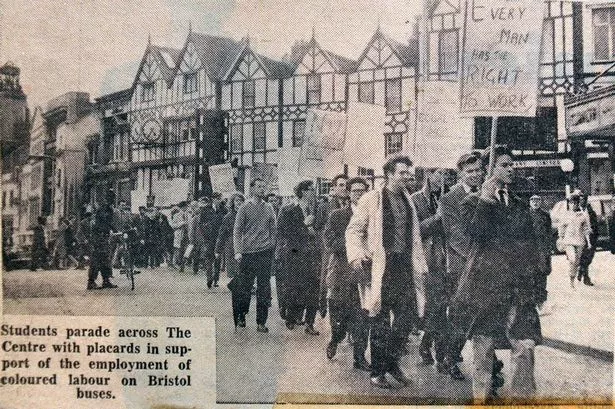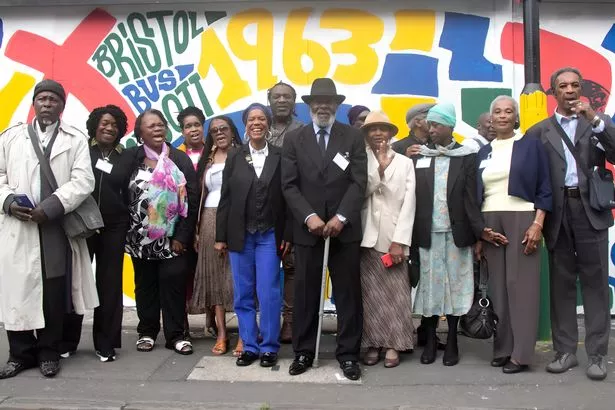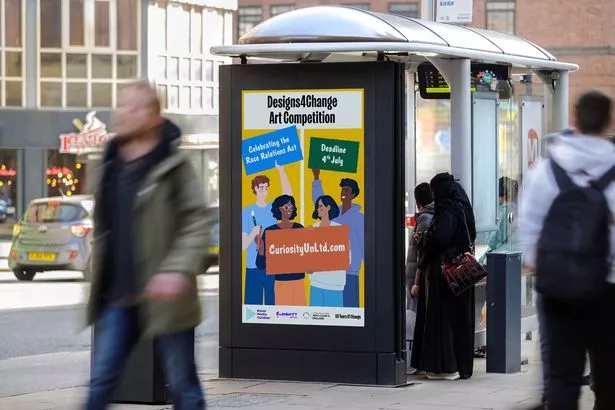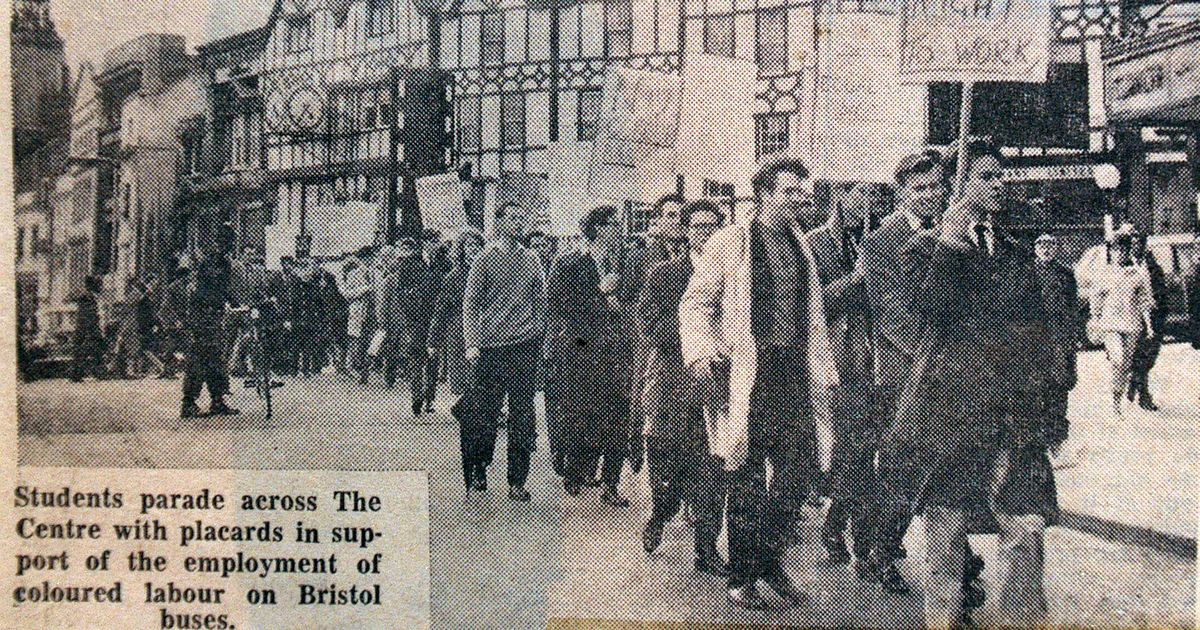This week is the anniversary of the first victory of the UK Civil Rights movement Bristol students protest across The Centre during the Bristol Bus Boycott of 1963
Bristol students protest across The Centre during the Bristol Bus Boycott of 1963
This week marks the anniversary of two events that happened on the same day 62 years ago and 5,737 miles apart. In Washington DC, Martin Luther King gave his famous ‘I Have a Dream’ speech to a quarter of a million civil rights activists. In Bristol, the first battle in Britain’s own civil rights movement was being won.
As Dr King was outlining his vision for a United States in which people were treated equally no matter the colour of their skin, in Bristol, a man called Ian Patey was also making an announcement. He was the general manager of the Bristol Omnibus Company which, up until that point, had refused to employ any workers from Bristol’s small but growing Caribbean and Asian communities.
Mr Patey didn’t make a speech as such, just a simple communication to the Bristol Evening Post that the company he managed would stop turning away black and Asian people who applied to work on his buses. It was August 28, 1963, and the Bristol Bus Boycott, a campaign which had begun four months earlier on April 30 that year, had succeeded.
What the Bristol Omnibus Company, which had a monopoly on all the buses in the city and beyond, had done until that point wasn’t illegal at the time. But the Bristol Bus Boycott, and the other activism by the group of new West Indian Bristolians, highlighted the need for the rights of everyone not to be discriminated against in areas like employment, housing, and hospitality, to be enshrined in law.
After the victory in Bristol, they began to take their campaign to Westminster and two years later, the first of a series of laws, known as Race Relations Acts, were passed by the Government. This autumn marks the 60th anniversary of the first – as a direct result of the Bristol Bus Boycott two years earlier.
The first outlawed discrimination on the grounds of ‘colour, race or ethnic or national origins’, set up the Race Relations Board, and made it illegal to refuse to serve someone in a public setting – but not shops or boarding houses – because of the colour of their skin. It was weak, but it was a start.
Three years later, the 1968 Race Relations Act outlawed discrimination in employment and housing – ending the practice that had been highlighted by the Bristol Bus Boycott five years earlier, of refusing to consider a black person for a job.
READ MORE: In pictures: Memorial service held for civil rights pioneer Dr Paul Stephenson
The third Race Relations Act followed in 1976 cemented the first two and set in stone the idea that any kind of discrimination against someone because of their race is illegal in the UK, which has been further confirmed by more legislation in the 21st century.
Now, to mark the 60th anniversary of the first Race Relations Act, the story of the Bristol Bus Boycott is to be told nationwide. A competition started in Bristol for people to create artwork celebrating the achievements of the bus boycott has been run, with ten winning designs going across the country.
 Bristol social justice organisation Curiosity Un(Ltd) is urging businesses to get involved in the Big Bristol Bus Boycott Business Breakfast(Image: Curiosity Un(Ltd))
Bristol social justice organisation Curiosity Un(Ltd) is urging businesses to get involved in the Big Bristol Bus Boycott Business Breakfast(Image: Curiosity Un(Ltd))
Some have already been seen in Bristol, and from this weekend, they will be going nationwide. The Bristol organisation Curiosity (Un)Ltd, which has been championing spreading the word about the Bus Boycott since before the 60th anniversary back in 2023, has created an initiative called Designs4Change.
The initiative also involves Bauer Media and its outdoor digital network, which means the winning artwork will reach millions of people passing bus stops, shopping centres and train stations across the country, spreading the word about the Bristol Bus Boycott and its 60-year legacy to the rest of Britain. The posters and artwork will be in place until the end of September.
 An advert for the Designs4Change competition artwork highlighting the Bristol Bus Boycott and the 60th anniversary of the first Race Relations Act in 1965(Image: Curiousity (Un)Ltd/Bauer Media Outdoors)
An advert for the Designs4Change competition artwork highlighting the Bristol Bus Boycott and the 60th anniversary of the first Race Relations Act in 1965(Image: Curiousity (Un)Ltd/Bauer Media Outdoors)
“Designs4Change is a movement for representation and resilience,” said the ‘disruptor-in-chief’ of Curiosity. “We’re not just creating art; we’re taking over public spaces to remind people of the history behind the Race Relations Act and the ongoing fight for change.
“We’re deeply grateful to all who entered and invite everyone to look for the powerful work of our ten winners on display until September 30,” he added.
READ MORE: Bristol Bus Boycott: Campaign launches to bring Martin Luther King III to city on 60th anniversary of Race Relations ActREAD MORE: Paul Stephenson and me – the Bristol civil rights pioneer, from one who worked with him for 20 years
Martin Corke, from Bauer Media Outdoor, said: “Designs4Change reminds us of the power that creativity has to spark conversation, especially when displayed where people live, work, and move. We’re proud to turn our screens into a national gallery, elevating voices that demand to be seen and heard, while reinforcing our role in public spaces.”
This Saturday morning, all ten works of art were unveiled for the first time together, first at the bus stops on Prince Street, and then with a special film on the big outdoor screen at We The Curious.
